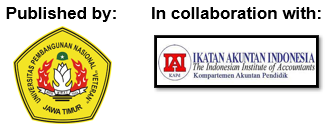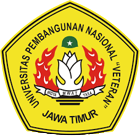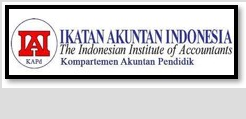Student Perceptions of Fraud and Whistleblowing Based on Gender
(Case Study on the Students of Faculty of Economics Universitas Hasyim Asy'ri Tebuireng Jombang)
DOI:
https://doi.org/10.33005/jasf.v2i2.62Keywords:
Gender, Fraud Perception, Whistleblowing PerceptionAbstract
When giant companies are involved in fraud that has an extremely detrimental effect on the economy, the fraud cases become scandalous. The giant company's fraud case was revealed, mostly because of the information within the company that was revealed by the company's employees, which is called whistleblowing. The purpose of this study is to prove the differences in students' perceptions of fraud and whistleblowing behavior based on gender factors. Research is conducted on students of the Faculty of Economics of Universitas Hasyim Asy'ari Tebuireng Jombang, who are in the third semester or above so that they already understand fraud and whistleblowing. This type of research is quantitative research based on empirical studies. The research sample was selected by using the technique of probability sampling with the category of simple random sampling. The hypothesis testing using multiple research paradigms with one dummy variable and two dependent variables so that it uses two simple dummy regression tests. The decision on the results of hypothesis testing uses two R Square determination coefficients to explain the relationship of each variable. The results of this study prove that there is no gender effect on the students' perception of fraud and whistleblowing.
Downloads
References
Anonymous, (2018), 5 Most Scandalous Fraud Cases of 2018, Fraud Magazine Online, November, https://www.fraud-magazine.com/2018Top5Frauds/, accessed July 02, 2019.
Barnes, T. D., & Bealieu, E. (2014). Gender Stereotypes and Corruption: How Candidates Affect Perceptions of Election Fraud, Politics and Gender, Volume 10, Issue 3, September, 365-391. DOI: https://doi.org/10.1017/S1743923X14000221
BHP, UMY (2017). Kecurangan Akademik Merusak Moral Bangsa, January 9, http://www.umy.ac.id/kecurangan-akademik-merusak-moral-bangsa.html, accessed July 02, 2019.
Capezio, A., & Mavisakalyan, A. (2016). Women in the boardroom and fraud: Evidence from Australia. Australian Journal of Management, 41(4), 719–734. DOI: 10.1177/0312896215579463.
Culiberg, B., & Mihelič, K. K. (2016). The Evolution of Whistleblowing Studies: A Critical Review and Research Agenda. Journal of Business Ethics, 146 (4), 787–803. DOI: 10.1007/s10551-016-3237-0.
Cumming, D., Leung, T. Y., & Rui, O. (2015). Gender Diversity and Securities Fraud. Academy of Management Journal, 58 (5), 1572–1593. DOI: 10.5465/amj.2013.0750.
Davis, M. (1996). Some paradoxes of whistleblowing. Business and Professional Ethics Journal, 3-16.
Fransiska, I. S. & Utami, H. (2019). Perilaku Kecurangan Akademik Mahasiswa: Perspektif Fraud Diamond Theory, Jurnal Akuntansi Aktual, Vol. 6, No. 2, Juli, 280-344.
Hofmann, S. (2015). Tackling fraud in higher education, Online Exclusive, November, https://www.fraud-magazine.com/article.aspx?id=4294990803, accessed July 02, 2019.
Hunt, L. (2010). The Challenges Women Whistleblowers Face, International Business Research, Vol. 3, No. 2, April, 3-8.
Kaplan, S., Pany, K., Samuels, J., & Zhang, J. (2009). An Examination of the Association Between Gender and Reporting Intentions for Fraudulent Financial Reporting. Journal of Business Ethics, 87 (1), 15–30. DOI: 10.1007/s10551-008-9866-1.
Kray L.J, & Haselhuhn, M. P. (2011) Male pragmatism in ethical decision making. Working Paper. Berkley, CA: Institute for Research on Labor and Employment. Available at: http://escholarship.org/uc/item/05n3d6pj, accessed August 6, 2019.
Liyanarachchi, G. A., & Adler, R. (2011). Accountants’ Whistle-Blowing Intentions: The Impact of Retaliation, Age, and Gender. Australian Accounting Review, 21(2), 167–182. DOI: 10.1111/j.1835-2561.2011.00134.
Manafe, M. W. N. (2015). Pengaruh Penalaran Moral, Retaliasi dan Gender terhadap Kecenderungan Whistleblowing Internal, WAHANA, Volume 18, No. 2, Agustus, 113-126.
Pertiwi, P. (2018). Perusahaan Raksasa Kehilangan Miliaran Dolar karena Fraud, Ini Pelajaran yang Bisa Dipetik, January 3, https://www.integrity-indonesia.com/id/blog/2018/01/03/ perusahaan-raksasa-kehilangan-miliaran-dolar-karena-fraud-ini-pelajaran-yang-bisa-dipetik/, accessed July 12, 2019.
Primeaux, E. (2019). Whistleblower helped dismantle biotech juggernaut Theranos in his 'zero-strategy' defense, Cover Story October/November Fraud Magazine, https://www.fraud-magazine.com/cover-article.aspx?id= 4295006794, accessed November 10, 2019.
Riyanto, T. (2016). Apa itu Whistle-Blowing? June 14, https://zahiraccounting.com/id/blog/apa-itu-whistle-blowing/, accessed July 05, 2019.
Romney, M. B. & Steinbart, P. J. (2018). Accounting Information Systems, 14th edition, USA: Pearson Education, Inc.
Saputra, B. & Dwita, S. (2018). Pengaruh Retaliation dan Gender terhadap Niat Melakukan Whistleblowing, Jurnal Wahana Riset Akuntansi (WRA), Vol. 6, No. 2, 1233-1253.
Sekaran, U. & Bougie, R. (2016). Research Methods for Business: A Skill-Building Approach, 7th edition, New York: John-Wiley and Son Inc.
Shawver, T. J., & Clements, L. H. (2014). Are There Gender Differences When Professional Accountants Evaluate Moral Intensity for Earnings Management? Journal of Business Ethics, 131 (3), 557–566. DOI: 10.1007/s10551-014-2293-6.
Sugiyono. (2017). Metode Penelitian Kuantitatif, Kualitatif, Dan R&D. Bandung: Alfabeta
Stylianou, A. C., Winter, S., Niu, Y., Giacalone, R. A., & Campbell, M. (2012). Understanding the Behavioral Intention to Report Unethical Information Technology Practices: The Role of Machiavellianism, Gender, and Computer Expertise. Journal of Business Ethics, 117 (2), 333–343. DOI: 10.1007/s10551-012-1521-1.
Tilton, C. (2018). Women and Whistleblowing: Exploring Gender Effects in Policy Design, Columbia Journal of Gender and Law, 35 (2), 338-368.
Tuanakotta, T. M. (2012). Audit Berbasis ISA (International Standards On Auditing). Jakarta: Salemba Empat
WE-online (2017). Ketika Skandal Fraud Akuntansi Menerpa British Telecom dan PwC, June 22, https://www.wartaekonomi.co.id/read145257/ketika-skandal-fraud-akuntansi-menerpa-british-telecom-dan-pwc.html, accessed July 05, 2018.
Wikipedia, (NA). Pelapor Pelanggaran, https://id.wikipedia.org/wiki/Pelapor_ pelanggaran, accessed June 15, 2019.














